
March 26, 2023
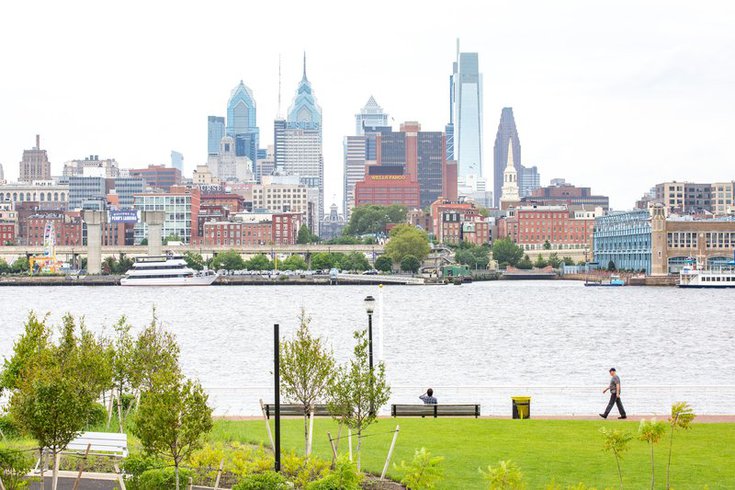 Thom Carroll/For PhillyVoice
Thom Carroll/For PhillyVoice
Philadelphia residents have been encouraged by the Water Department to drink bottled water Sunday afternoon after a chemical leak that occurred Friday in a Delaware River tributary in Bucks County.
UPDATE: Tap water from the Baxter Drinking Water Treatment Plant will remain safe to drink and use at least through 3:30 p.m. Tuesday, March 28, according to the latest sampling results and data. There is no need to buy water at this time, as residents can safely consume tap water, according to officials.
Philadelphia Water Department is advising residents to drink bottled water Sunday afternoon after a chemical leak that occurred in a Delaware River tributary.
A latex spill occurred in Bristol Township, Bucks County, on Friday. While no contaminants have yet been found in the tap water system, residents are encouraged to switch to bottled water after 2 p.m. Sunday out of an abundance of caution.
MORE: At least two dead after chocolate factory explosion in West Reading, police say
"As has been reported, on Friday night, a chemical spill occurred in Bristol Township, Bucks County which released contaminants into the Delaware River," Michael Carroll, deputy managing director for the Office of Transportation, Infrastructure and Sustainability (OTIS), said in a statement. "The Philadelphia Water Department (PWD) became aware of this through the Delaware Valley Early Warning System (EWS) and has been evaluating the situation since that time to understand potential impacts to the public. Although early indications have not revealed contamination, we are still monitoring the situation and conducting testing."
The spill will potentially affect water treated at Philadelphia's Baxter Drinking Water Treatment Plant. Sections of the city that are impacted include South Philly, Center City, Northeast Philly, North Philly, the River Wards and parts of Germantown, Olney and East and West Oak Lane.
Philadelphia office published a map showing areas of the city where the water supply is potentially affected by the spill. Residents can enter their addresses into the map's search bar to precisely determine if they are in the impacted areas.
Delaware River Latex Spill Impact Map
People in the affected areas should avoid drinking or cooking with tap water, according to officials. There is no concern over inhaling fumes or skin exposure, according to officials, so residents should feel comfortable bathing or taking showers.
An alert sent to Philadelphia residents encouraging them to drink bottled water following the chemical leak in the Delaware River.
Carroll, along with Randy Hayman, Philadelphia Water Department commissioner, gave a press conference Sunday morning that can be viewed online.
"Contaminates have not been found in our water system at this time and we expect that theres no risk that they will be present anywhere in our system before about 2 p.m. today," Carroll said during the press conference. "Nonetheless because we cannot be 100 percent that there will not be traces of these chemicals in the tap water throughout the entire afternoon, we want the public to be aware so that people can consider switching to bottled water to further minimize any risk."
At 12:15 a.m. Sunday morning, the intakes at the Baxter Drinking Water Treatment Plant were opened at high tide on the Delaware River and closed at approximately 5 a.m. to maintain minimum levels of water in the system, according to Carroll. This would help avoid any damage to equipment to allow the facility to continue supplying water for fire safety and other needs.
Philadelphians flocked to the supermarkets Sunday following the warnings, as can be seen in the photos below from a South Philly Acme which saw long lines and bare shelves where water bottle cases once sat.
A line forms outside an Acme in South Philly amid advisories for Philly residents to switch to bottled water following a chemical leak into the Delaware River.
Shelves formerly holding water bottle cases are emptied out in a South Philly Acme following an advisory to avoid drinking tap water.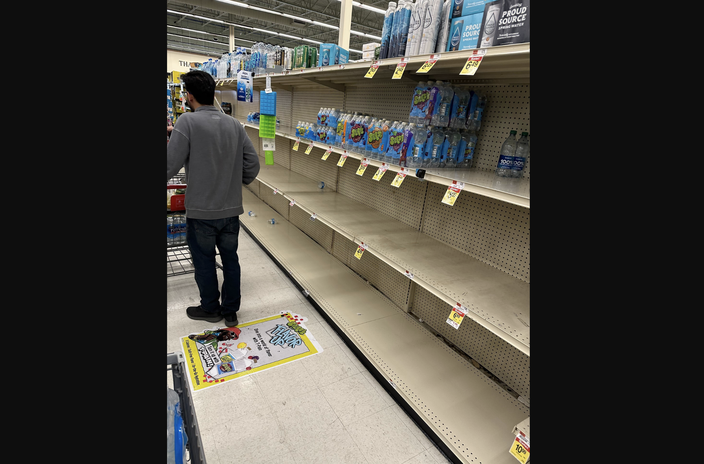
The leak occurred late Friday, when an estimated 8,100 gallons of latex finishing material ended up in the Delaware River following a spill into the Otter Creek, a tributary of the River. The release was caused by a pipe rupture at Trinseo PLC, a nearby chemical plant.
"It's like the material you find in paint," Senior Vice President of Manufacturing and Engineering at Trinseo, Tim Thomas, told 6ABC. "It's your typical acrylic paint you have in your house, that's what really this material is, in a water base."
Among the chemicals in the water-soluble latex painting products that infiltrated the Delaware River was butyl acrylate, a chemical also identified in the train derailment in East Palestine, Ohio, last month.
“I want to reiterate that the health risks are very low if present at all," Carroll said. "No acute effects are associated with low level exposure. Our best information is that people who ingest water will not suffer any near-term symptoms or acute medical conditions. We foresee no reason to seek medical attention related to this event."
The Water Department and Philadelphia Office of Emergency Management will continue to provide updates as they become available.
Follow Franki & PhillyVoice on Twitter: @wordsbyfranki
| @thePhillyVoice
Like us on Facebook: PhillyVoice
Have a news tip? Let us know.
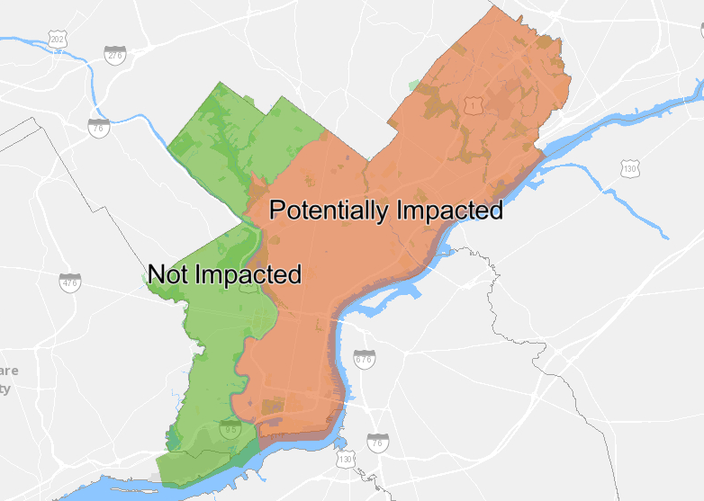 Source/Philadelphia Water Department
Source/Philadelphia Water Department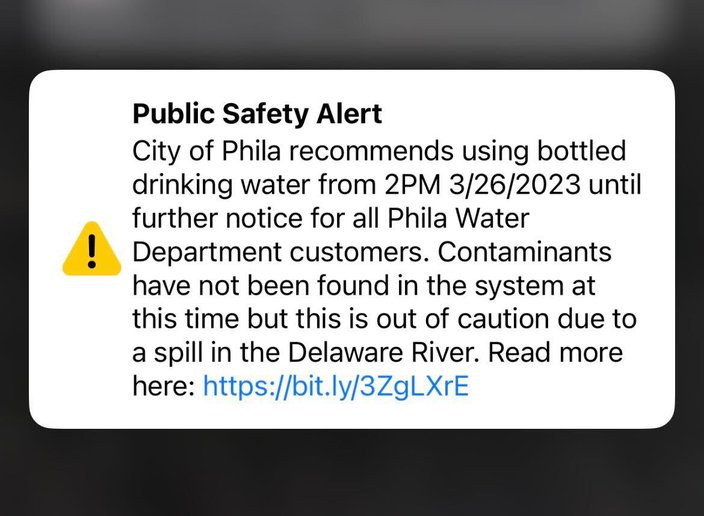 Staff Photo/PhillyVoice
Staff Photo/PhillyVoice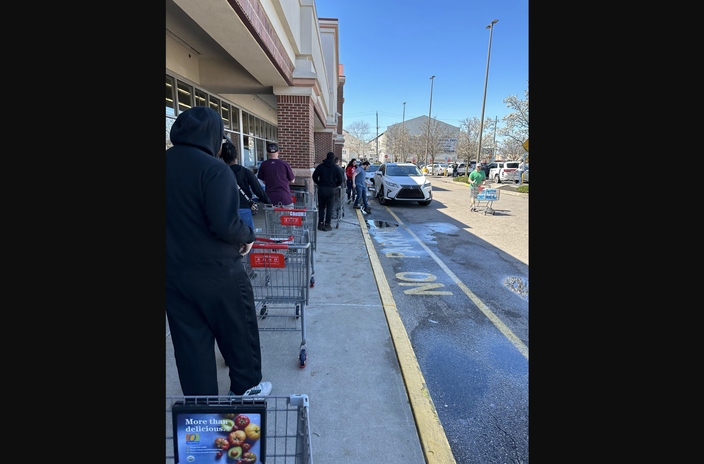 Kyle Neubeck/PhillyVoice
Kyle Neubeck/PhillyVoice